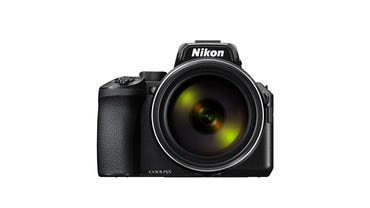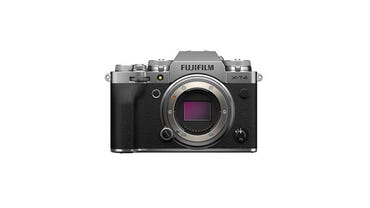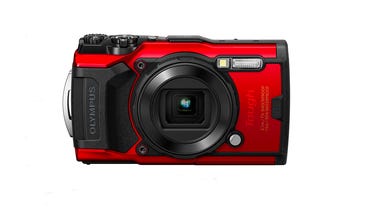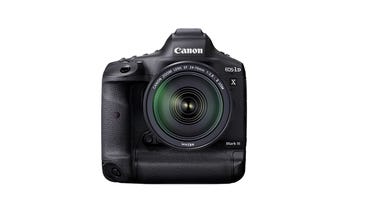Best camera 2021: Professional shoots to street photography, compared | ZDNet
If you’re new to the photography world, the sheer range of options, terms, brands, and accessories can make your head spin.
Professional photographers may spar over whether Canon or Nikon is the best brand, which ISO setting should be used for low-light shots, or whether or not smartphone-based or mirrorless cameras could ever beat a DSLR, but whether you’re professional or a hobbyist, there are countless cameras out there which can suit your purpose.
When you’re considering the purchase of a camera, it is first worth working out what you want it to do for you.
Some models will come as body-only with lenses as separate purchases, some will come with a variety pack already included, and others may come with one fixed lens and no other. If you want a camera for special occasions, holidays, or going out only, a compact and travel-friendly camera may be your best bet — but if you want to eventually go professional, you might want to consider spending out a little more on a DSLR or mirrorless to give yourself more versatility later.
Below, you will find ZDNet’s top picks for cameras, whether for yourself or as a gift during the holiday season.
Buyer’s Guide
Canon’s PowerShot G1 X Mark III is a compact, travel-friendly camera that performs well as an all-rounder. It’s close enough to a DSLR, considering it sports a 24.2 megapixel CMOS sensor, Canon’s Dual Pixel CMOS AF system, an ISO range of 100 — 25600, and built-in touch-and-drag viewfinder capabilities.
While the built-in lens can be restrictive, this point-and-shoot is still a worthwhile camera to consider.
Pros:
- Lightweight
- Good image quality, overall
- Continual shooting an option (7.0 fps)
Cons:
- Fixed 24-72mm zoom lens
- Battery life could be improved
- Low-light conditions can be challenging
A telephoto lens with a camera included
The Nikon COOLPIX P950 has one major appeal: the powerful, compact telephoto lens equipped to this camera. Telephoto lenses are used to capture subjects or scenes at a distance rather than those close up, and so a camera like this will likely appeal to those interested in candid street photography or wildlife shoots.
Pros:
- 83x (24mm — 2,000mm) zoom telephoto lens, ISO limit of 100 — 6400
- 4K UHD video recording options
- Dual Detect Optical vibration reduction
Cons:
- 16 megapixel CMOS sensor — there are more powerful options in the same price bracket
- Reports of poor autofocus performance
- Non-touch display
An entry point into mirrorless photography
If you’re interested in exploring what mirrorless equipment has to offer, the Fujifilm X-T4 mirrorless digital camera should be considered. This compact camera sports a 23.5mm x15.6mm (APS-C) X-Trans CMOS sensor, AF/MF focus modes, image stabilization, weather protection, and up to 10fps in continuous shooting mode.
You can buy the camera together with a 16 – 80mm lens or a 15 – 55mm lens as a bundle.
Pros:
- 4K video
- Good battery life
- Comfortable handgrip
Cons:
- No lenses included
- Expensive entry point
- Reports of overheating in certain settings
You’ll find the Canon DSLR Mark series in the hands of many professional photographers today. A personal pick that has served me faithfully in wedding and event shoots is the Canon EOS 5D Mark IV, a high-quality camera that produces amazing results when paired up with the right lenses. This camera is equipped with a 30.4 megapixel full-frame CMOS sensor, AF/MF modes, DIGIC 6+ image processor, continual shooting capabilities of 7.0 fps, and a robust viewfinder.
Pros:
- 100 – 32000 ISO
- 4K video
- Good battery life (although a second pack is recommended for day shoots)
Cons:
- Expensive outlay, not counting lenses
- Can be bulky without an additional grip
- A steep learning curve
If you’re in the market for a camera that can handle a wide range of environmental conditions, the Olympus Tough TG-6 should be on your radar. This rugged camera contains a 12 megapixel BSI CMOS sensor, 4K 30p and timelapse functionality, 100 – 12800 ISO options, and an LCD monitor. The camera is capable of 20fps shoot speed and has wireless flash control options.
Pros:
- Dustproof, crushproof, and shockproof protections
- Waterproof up to 50 meters
- Useful auto scene modes
Cons:
Professional photography far into the future
The Canon EOS-1D X Mark III is one of the best DSLR options out there for professional photographers. The camera, among other features, sports a 35mm 20.1 Megapixel full-frame CMOS sensor, a DIGIC X Image processor, an ISO range of 100 — 102400 (expandable to 50 — 819200), 16/20 fps, and a burst rate of up to 1,000 in continuous shooting modes. Video can be shot at 59.94 fps, 4K (DCI).
An excellent body, however, is only part of the story, and you will need to invest in high-quality lenses to pull out the full potential of the Mark series.
Pros:
- Exceptional image quality
- Future-proof for years to come
- Improved auto focus on past models
Cons:
- Expensive
- Bulky
- Body-only, lenses will be an additional expense
FAQ
How did we choose these products?
To give you the best options available on the market, we chose products that offered a range of different technical specifications suitable for entry-level to professional users. This included compact camera models, mirrorless designs for the curious, and higher-specification, future-proof DSLRs.
Which is the right one for you?
When you consider investing in a camera, you need to first decide on your use cases — as it might be overkill, for example, to purchase a top-spec DSLR for use only at birthday parties or Christmas, or you might be better off with a rugged setup if you plan to use your camera in more hazardous environments. It should also be noted for those interested in going professional that you don’t need to go all-out straight away — you can always upgrade over time. However, if you’re looking for a model that is relatively future-proof, it might be best to choose an investment camera rather than a short-term option.
What does mirrorless mean?
A mirrorless camera tends to be lighter than a comparable DSLR and they are designed to allow light to directly pass to a sensor, rather than requiring a mirror to manage image capture.
Is a DSLR or mirrorless camera worth it?
If you are looking for a camera with functionality beyond point-and-shoot and you want equipment for a specific reason — such as professional shoots, wildlife or sports photography, or portraiture — it may be worth investing in higher-end models.
Is the camera body or lenses more important?
Typically speaking, a lens should be upgraded before your body. Lenses allow you far more control and flexibility around image capture, and you are likely to secure better photos with a good lens and an average body than vice versa.
Are there alternatives worth considering?
These cameras did not make our top list, but they are still worth considering:
For all the latest Technology News Click Here
For the latest news and updates, follow us on Google News.





